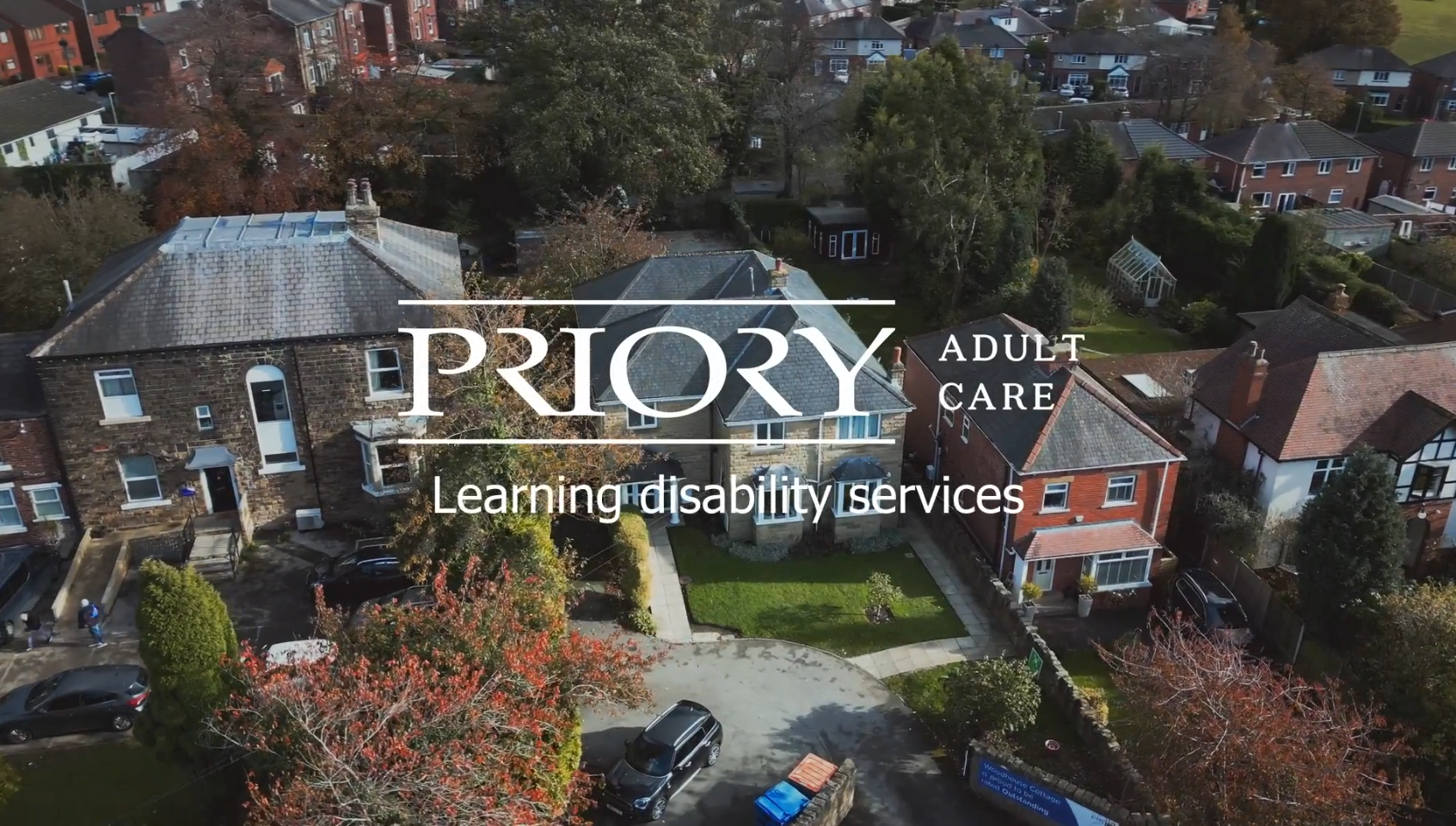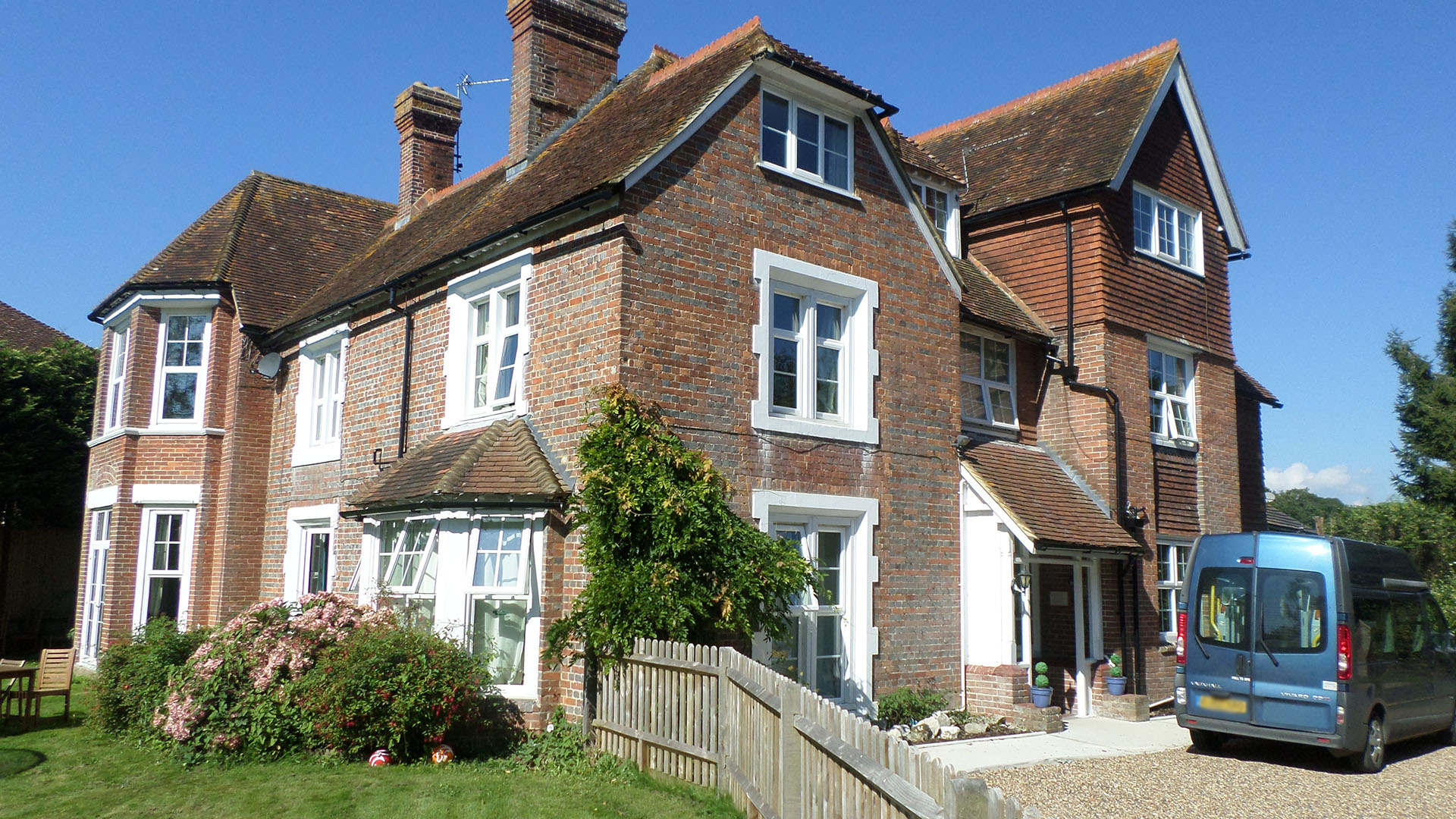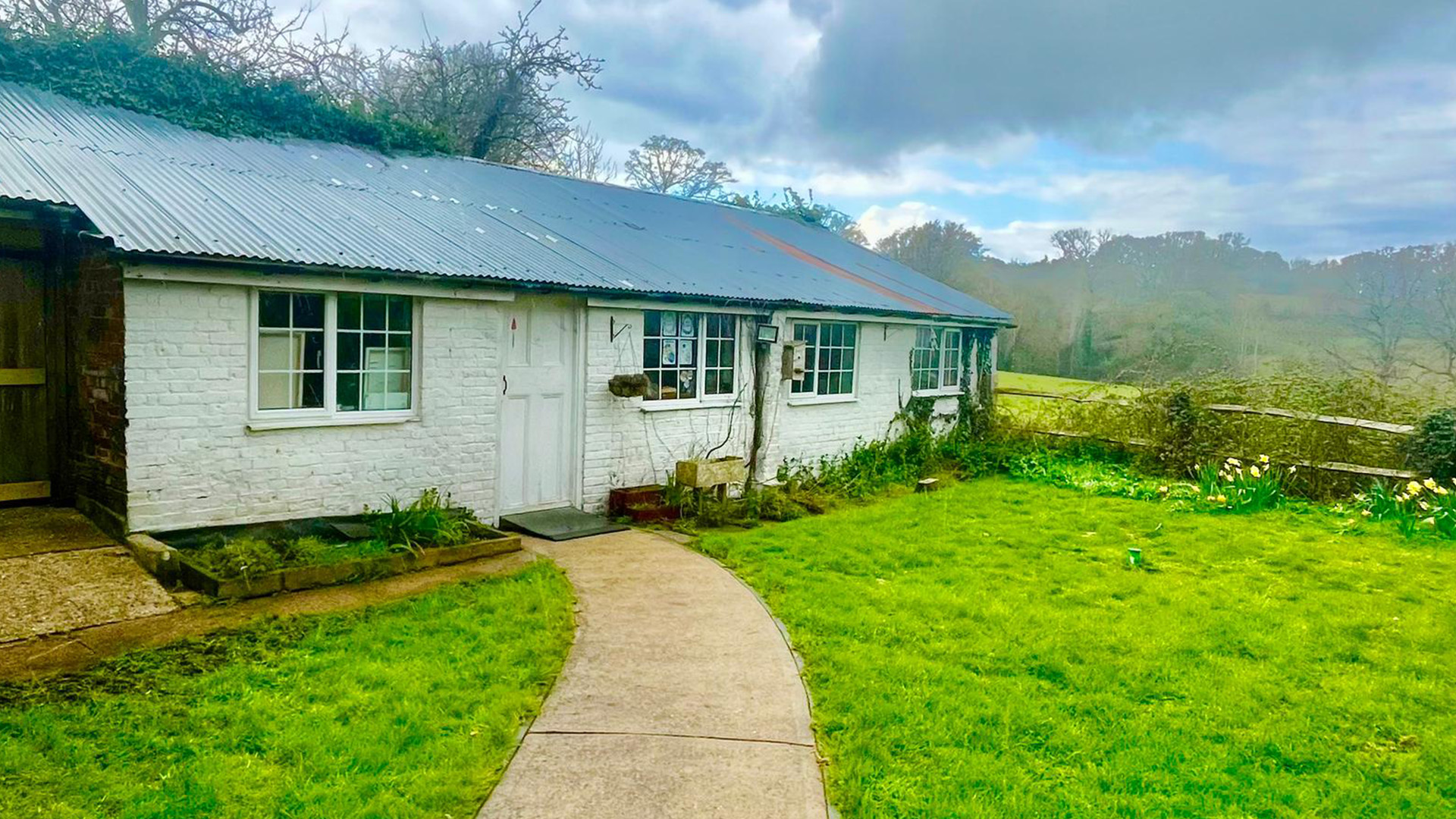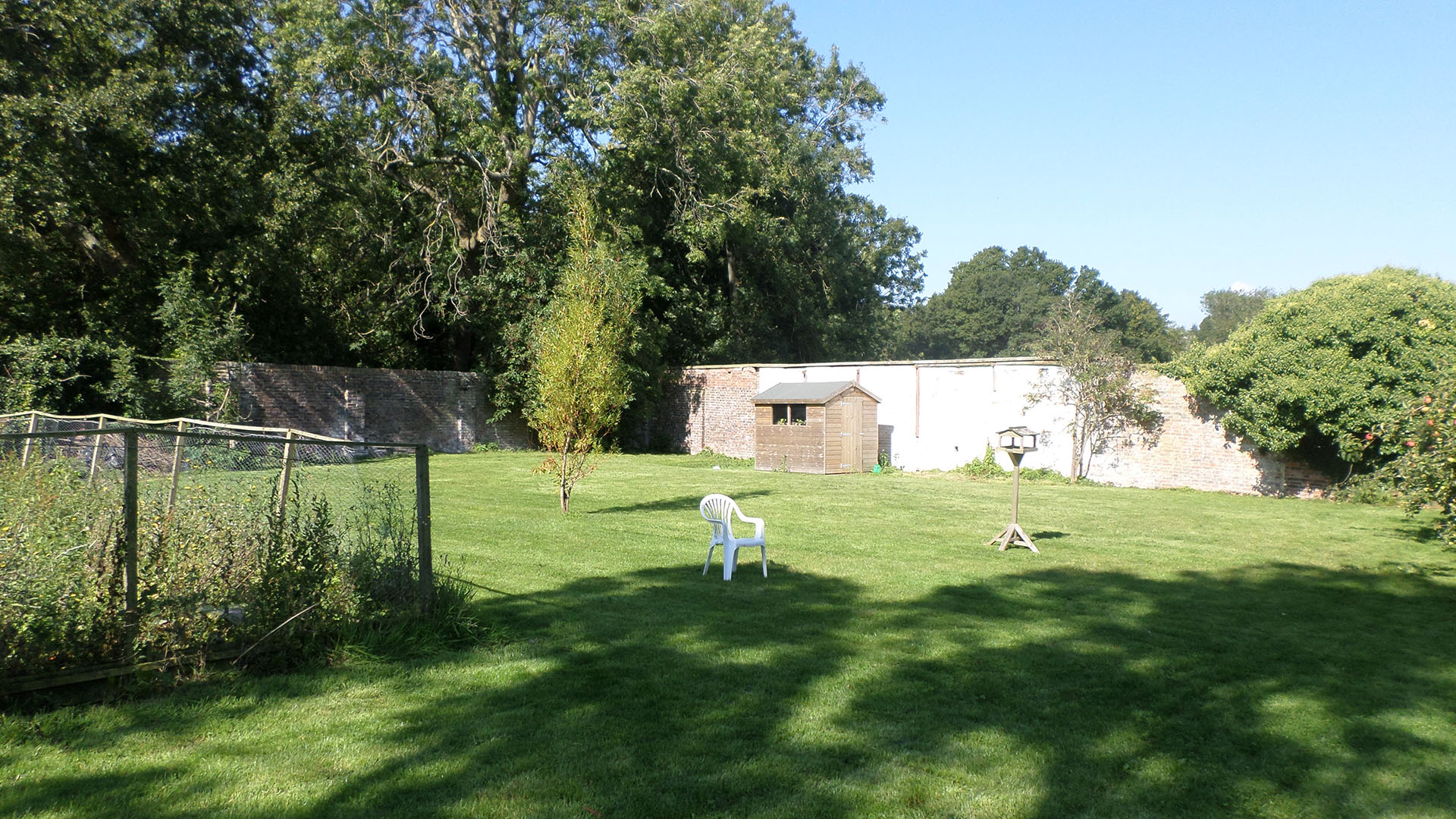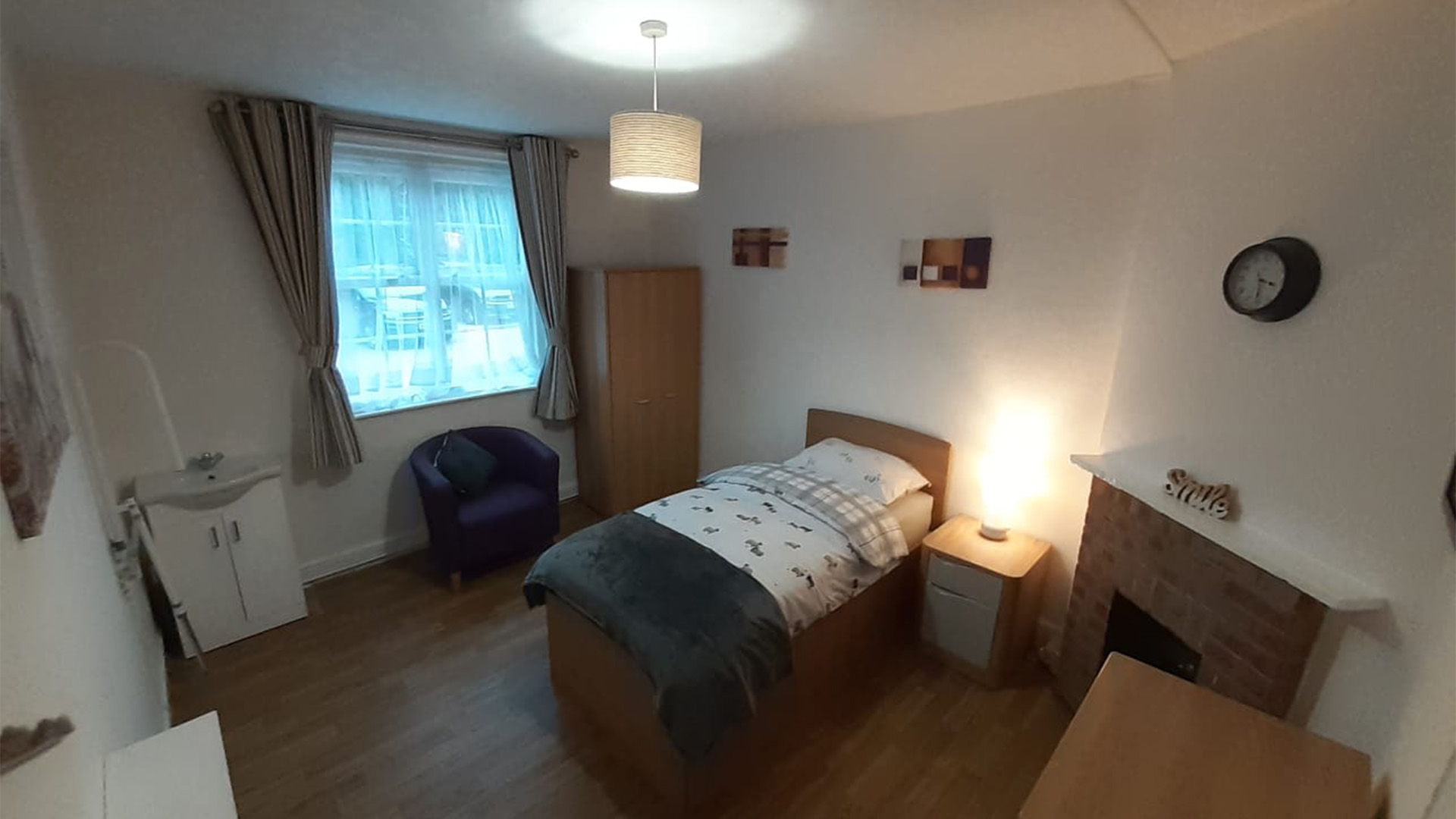About this location
The Old Rectory is a residential service, which is located in the village of Brede, in East Sussex. We support 15 males and females who are autistic or have a learning disability. The service is located in a semi-rural location, surrounded by beautiful countryside.
Our team are dedicated to promoting independence, equality, dignity and respect and as a team we are focused on building positive outcomes for everyone. We provide high quality, bespoke, meaningful activities for our residents both on site and in the community, tailored to meet their individual’s needs.
Our residents predominantly have a dual diagnosis, and may have other needs or conditions, including:
- Mental health needs
- Difficulties with communication
- Mild to moderate behaviours that challenge
Services at a glance
Click here to enable this content
About our service
Our facilities and environment
The large detached, communal house has lots of space and offers a relaxed, homely environment.
There are 12 bedrooms in the main house, which are split across three floors, with three on the ground floor. There are six communal bathrooms for residents to use. In addition to the main building, there is also a separate cottage with three bedrooms, each with en-suite facilities.
In summary, we offer:
- A large lounge with plenty of seating
- Kitchen and dining room
- Well-equipped activities room
- Communal bathroom
- Communal wet room
- Conservatory
We also have a large garden, complete with:
- Secure fencing
- Lawn
- Patio
- Communal seating
- Trampoline
- Wheelchair access
- Vegetable patch
- Barbecue
In addition, we have a mobility adapted site vehicle to help us to meet the needs of the people we support.
Our bedrooms
All of our bedrooms are comfortable, welcoming and can be personalised to individual tastes. Our ground floor bedrooms have wheelchair access, and three bedrooms have en-suite facilities, containing either a shower or a wet room.
Our approach to support
Everybody who lives at The Old Rectory has their own person-centred care plan, which is co-produced with input from the individual, their family members and professionals involved in their care. We aim to help everyone in our care to make their own choices about the support they receive. This may include support in a number of areas, such as going out in the community, personal care, cooking and cleaning, and maintaining family relationships.
We also have support from a local multidisciplinary team including:
- Positive behaviour support (PBS)
- Occupational therapy
- Nursing
- Physiotherapy
- Speech and language therapy
- Psychology
In addition, we use tools such as the Outcomes Star™, including Life Star, to support our residents to achieve their goals. The lengths of the placements that we offer at The Old Rectory can be medium or long-term residential, depending on the needs of each person.
Activities
Everyone who lives at The Old Rectory has their own personalised activities planner and are encouraged to take part in activities which are meaningful and fulfilling to them. Our dedicated team organise a variety of activities at the home, as well as out in the community.
We focus on supporting our residents to grow their independence. For some people, this may mean developing their daily living skills within the home. For others, this could be accessing work or educational opportunities in the local community.
Pathways
Through our network of healthcare, residential and supported living facilities, we provide unique care pathways which help the people we support to progress towards greater independence. Every individual we support is provided with a bespoke pathway plan, tailored according to their individual needs. We aim to ensure that each person is supported to live a fulfilling and active life in the community.
Our team
Our highly experienced team consists of:
- Service manager
- Deputy manager
- Support workers
- Senior support workers
- Activities co-ordinator
The team receive specialist staff training, designed to meet the needs of each individual we support. This includes:
- Autism specialist training
- Mental health training
- PBS training
A message from our site leader

We pride ourselves on delivering bespoke person-centred care to those we support. We encourage the people we support to be active members within their communities, and to make choices about their lives, whilst developing their abilities and competence
The Old Rectory’s site leader
Comments from our residents and their family and friends
I like living here. The staff are nice and help you with things you want to do. The food is nice and we have lots of activities in the activities room
Family and friends FAQs
How does home leave work?
We support our residents to attend family events and visit their family home. We will work with them and their relatives to ensure possible risks are managed and that everyone is supported. This may mean the individual’s key worker will come along on the visit.
Can friends and families visit?
Yes, family and friends can come along to the home as often as they like. We do ask that visits are planned in advance to support the needs of our residents who can sometimes become anxious. There are no overnight stays.
Will I be involved and kept up to date with the progress of my loved one’s care and support?
Yes, we make every effort to keep the loved ones of our residents involved in their care. We can arrange regular catch-ups either in person or via telephone or video, to ensure you are kept informed.
Will my loved one be able to have a phone or call me?
Our home has two incoming phone lines, and there are cordless phones at various points around the property which can be used by residents at any time. In addition, we can support our residents to get their own mobile phone, where appropriate.
What are the bedrooms like?
Bedrooms are all furnished and residents are supported to personalise them to suit their needs and wishes. Some of the furniture is fitted, and therefore cannot be removed.
Are external doors kept locked?
Yes - due to the nature of the service, however every person will be risk assessed which will detail the level of security needed. We have a large garden area where individuals can freely exit and enter the building.
What do residents eat and how do meal times work?
Staff support residents with the preparation of their meals if they need it. They can choose and prepare what they want to eat, when they want it. All special dietary requirements are catered for, and we may seek advice from family members and nutritionists if needed.
How does laundry work?
Clean clothes and bedding is provided. We have a laundry on-site where residents can do their own washing, which helps them develop their independent living skills.
Who does the housekeeping and domiciliary tasks?
Residents help with the cleaning around the home and their bedrooms as part of a rota. We ensure they have the support they need and discuss the tasks during our monthly resident meetings.
Is there anything they can’t bring or have?
No family heirlooms please, as we cannot guarantee their safety. There are restrictions on some items where the risks cannot be appropriately managed, such as non-approved drugs and medications, solvent-based products and lighters.
How do activities work?
Everyone we care for has their own tailored activities planner, which will include both in-house and community activities. A variety of communication tools are used to ensure the resident can have a say on activities they want to do.
How will residents be supported with their behavioural needs?
We use the PROACT-SCIPr-UK® framework, which means we focus on active strategies, rather than physical intervention. We require our care plans which include restrictions to be assessed frequently, for example procedures for interventions such as pro re nata (PRN) medication are regularly reviewed and removed, where possible.
Do residents and families have an input into the care plans?
We work with social workers, family members and residents to develop care plans which are in the best interests of our residents. We use a variety of communication tools and work with health professionals to aid each resident in having a say about every aspect of their care. Care plans are regularly reviewed, and family members will be asked for their input.
What are the car parking facilities?
We have a private car park for ten cars.
What is the smoking policy?
Residents can smoke by the designated smoking area in the back garden, which has a shelter. We don’t permit smoking inside the building, and this includes vapes. Residents are able to buy cigarettes and vapes at the shops, if this is what they choose.
What are your fees and how are they funded?
Our fees can vary, and are based on an assessment of each individual's needs. Many people are eligible for financial help towards the cost of support, and this funding can be accessed by contacting your local authority. Once funding has been agreed, we will work with your local care team to put together a bespoke package of care. Please note, referrals for NHS or Local Authority funded services must come from a referring organisation.
Downloads
Lauren's story
How to make a referral
Our service provides high quality support to people with varying levels of need. Referrals can be made through the individual’s social care team or, if relevant, their local health authority. If you are a professional looking to make a referral, please call us or fill in our enquiry form.


